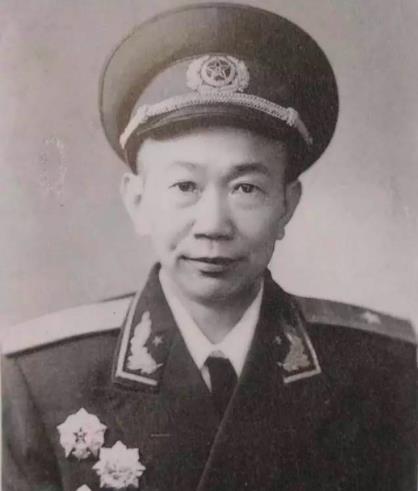Among the founding generals of new China, those who held the position of deputy corps were generally rated as deputy corps ranks and could be awarded the rank of general or lieutenant general.

Major General Liu Yongsheng once served as the deputy commander of the 10th Corps, why was he rated as deputy military rank?
Many people are not familiar with Liu Yongsheng, and his experience during the war years is special compared to other generals.
In 1927, he was influenced by Zhang Dingcheng to participate in the revolutionary uprising and became a traffic officer by Zhang Dingcheng's side. During the brutal struggle, he was transferred to the Red Guards, cooperated with the main Red Army in guerrilla warfare, and was later promoted to the head of the local unit and the commander of the battalion.
During the Long March of the main force of the Red Army, he stayed behind to fight guerrillas, served as a military and political commissar in southwest Fujian, was responsible for the military and political priorities of one side, and persisted in armed struggle for 3 years.
During the War of Resistance Against Japanese Aggression, he was transferred back to the old revolutionary base area of western Fujian to work and develop the revolution.
During the Liberation War, he was appointed commander of the People's Liberation Army of the Fujian-Guangdong-Gansu Border Work Committee and commander of the column of the Fujian-Guangdong-Gansu Border Region, and has been fighting guerrilla warfare in the border areas of the three provinces. When Ye Fei led the 10th Corps to liberate Fujian, he planned the main force to liberate Fujian.
After the founding of New China, Liu Yongsheng was transferred to the deputy commander of the 10th Corps, but judging from Liu Yongsheng's achievements, he had no experience in fighting in the main forces and could be appointed deputy commander of the corps, mainly considering his contribution to the armed struggle in Fujian.
In 1952, the general was given the rank of deputy, and in 1955, when he was awarded the rank of major general, he was awarded only the rank of major general.
Why is the deputy commander of the corps only rated as a deputy military rank?
Liu Yongsheng has been working in the local area for a long time, and even if he commanded the troops to fight, he mainly engaged in small-scale guerrilla warfare. From a military point of view, the record is not outstanding.
After the establishment of the Fuzhou Military Region in 1956, he served as the commander of the Fujian Provincial Military Region and the deputy commander of the Fuzhou Military Region.
In 1959, Liu Yongsheng ushered in a new mission, he was transferred from the army to the local government, as the vice governor of Fujian Province. He put the interests of the party and the people first. Because he was in charge of agriculture and forestry and flood prevention work, he always rushed to the front line in times of crisis, seeking truth from facts and helping the masses, and was a good public servant of the people.